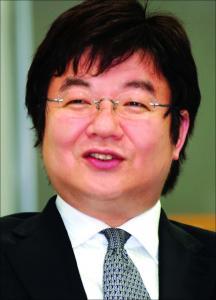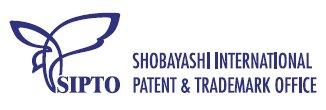Global Standards
How the Shobayashi International Patent & Trademark Office has adapted to changes in the international IP environment
By Joseph Greenberg
Marking New Territories
Walking through even the quietest of Japanese towns after midnight, it is normal to happen upon at least one brightly lit bar with a strange wailing emanating from within. Karaoke is one of Japan’s favorite pastimes, and despite the existence of the karaoke bars, it is not only for drunken salarymen but also for teenagers, the elderly, and just about everybody with a voice, to be enjoyed at any time of day. And karaoke is a massive business, particularly since it has become so popular overseas: just the word itself tells a story, it being one of the few Japanese words that has made it into foreign languages the world over.
 Daisuke Inoue invented the karaoke machine but never patented it
Daisuke Inoue invented the karaoke machine but never patented it
The karaoke machine was the brainchild of a man named Daisuke Inoue who, as legend has it, cobbled the thing together out of a car radio, a coin box and a small amplifier back in 1971. Tragically, Inoue did not patent his invention and has never made one yen directly from commercial sales of his invention; some have approximated his loss at around US$150 million. And it’s staggering how many similar stories are told by inventors who, wrapped up in their latest creation, their business sense falls by the wayside.
These days such unawareness of the need to patent inventions is much less common, particularly at the corporate level—the World Intellectual Property Organization reports that worldwide patent applications are growing at an average rate of 4.7% per year. Because more and more companies sell products internationally, the need for IP protection across the global market has increased. For example, in the pharmaceutical industry it may take 15 years from the decision being made of what drug to develop, to its final emergence in the market place—it would be a disaster if a competitor, local or international, was able to replicate the result.
 Masayuki Shobayashi
Masayuki Shobayashi
Moreover, improvements in research management, and heightened consumer expectations, have led to developments in R&D strategies that have a synergy with overall plans for corporate growth. Back in 2004, Bill Gates said that “we think, patent for patent, what we’re doing is more valuable than what others are doing…We try to make sure that Microsoft research is not separate from the product groups.” Protecting IP not only guards against infringement by other companies, but is equally a tool to corner your own market. Exhibiting both these sides to the current IP drive, in 2006, Apple filed for patents related to wireless download software for iPods—both a protective and expansionist measure. Rather like European discoverers in the sixteenth and seventeenth centuries, companies are marking out their territories and are prepared to go to greater and greater lengths to protect them.
Masayuki Shobayashi, founder and chairman of Shobayashi International Patent & Trademark Office is an expert in helping such voyagers register, protect and defend their property. He explained that until very recently companies and individuals would have to apply for products to be patented in each separate target market. Although there have been a number of treaties designed to develop international standards, going back to the Paris Convention of 1883, there is now a growing need to reduce the time taken to process applications and deal with the increasingly complex rules and regulations. In order to tackle this issue, in July 2006 the US Patent & Trademark Office and the Japan Patent Office declared that they would embark on a Patent Prosecution Highway (PPH) pilot scheme (see J@pan Inc Issue 72); in essence a scheme whereby major national patent offices (UK, Germany, and South Korea, are all planning to implement the PPH with Japan) and Japan will share search and examination results with foreign patent offices in order to speed up the process of registering the same invention or product in different countries at the same time.

Shobayashi remarked that, in light of such systemic developments, Japanese law firms have been forced to grow in order to meet the demands of more international clients and this is partly the reason for his own company’s expansion. As a specialist in helping foreign clients protect their patents and trademarks in Japan, the market has moved in his direction. In order to maintain his competitive advantage as a firm especially responsive to the needs of foreign clients, Shobayashi International has cultivated a powerful translation department and team that have backgrounds from technical fields such as engineering and biochemistry.
Shobayashi himself thrives on the technical side of the job and also enjoys the code names that are invented for applications. Being totally confidential these inventions, that often take on different names once the media start to write about them, start off life being named after a Japanese anime or the patent attorney’s favorite colour. For example, when working on the patent for the DVD, it was known internally only as “white” before the name DVD had even been applied.
Placing a high value on specialist input during the application process, Shobayashi International has six separate departments specializing in the following fields:
i. Chemicals, biotech and pharmaceuticals
ii. Mechanical & optical
iii. Electrical & IT
iv. Trademarks & designs
v. Litigation
vi. International
As a result of such expertise, Shobayashi was able to win the contract to work on a project was for Taisho Pharmaceutical’s RiUP, a hair loss treatment that has become massively popular in Japan. Its first year sales revenue totaled over JPY30 billion. One of the unique aspects of the case was that RiUP was the first ever over-the-counter drug to be sold as such, without going on prescription first. The firm have also worked on engine patents for several major global manufactures. The current market favors firms that are ‘foreigner friendly’ and that embrace the internationalization of the system, two issues that are very close to Shobayashi’s heart.
A man on a mission
In the late 1990s a foreign columnist in the Nikkei, alleged that patent attorneys in Japan were involved in what was essentially bid-rigging— having clandestine agreements among each other that they would keep prices high and not undercut one another. At the time, Masayuki Shobayashi, then aged 32 years old, had just started up his own law office and was busy sweating over his work with his threeperson team. When Shobayashi read the article, it was a life changing moment. Firstly, he was outraged that a foreigner could be given such an impression, and then his rage turned to determination: from that moment forward, Shobayashi was on a mission to prove not only that Japanese patent attorneys had integrity, but also to offer clients fair and honest prices.
Almost 10 years later, Shobayashi International employs approximately 200 people of which 26 are fully qualified benrishi (patent attorneys). Mr Shobayashi has kept true to his crusade; he explains that, “In Japan, many of the older, traditional firms work closely with old networks and therefore don’t always push the courts as hard as they might. At Shobayashi International we are actually quite pushy with the Patent Office because our first priority is to get the job done for the client, and in good time too.” In terms of prices, Shobayashi has been able to keep costs down for clients in a number of ways. For one, his offices are in Ikebukuro—unlike the traditional firms that base themselves in Marunouchi and are thus forced to keep client charges up with the rent. Further, Shobayashi’s aggressive approach to the court system means that he is much faster than other firms in getting results and this is another way of cutting costs.
Mr Shobayashi has also made steps as a reformer from within the establishment. The Japan Patent Attorneys Association (JPAA: nihon benrishikai) is the professional association for benrishi. Organized into eight factions, each with their partialities and obligations, candidates for election to the eight leading vice president positions traditionally come from one of these factions. Seeing this as a limitation on reform, and against his natural sense of fairness, Shobayashi stood as an independent candidate for the vice presidency. The election saw him fly to victory winning the highest ever number of votes for an independent candidate in the organization’s history. This has not only won him respect, but also means that he has set an example to like minded modern benrishi who have their primary loyalties to the client and not to the system.
As a child, Shobayashi was a lover of science and had fun trying to invent his own powders, potions and fireworks. His scientific side comes in handy with his work allowing him to enjoy and understand technical descriptions. His mischievous streak also manages to find an outlet in his professional life. For a couple of years he wrote a column for the Japanese industry magazine called Patent (published by the JPAA) where he was able to express his controversial opinions about the need for reform of the courts and patent application procedures. He says it was only once he stopped writing the column that he realized how well it had been received—fans sent mail asking him why he had stopped.
A culture of commitment
We asked Mr Shobayashi what philosophy has helped him go from an office of 3 to one of 200. In terms of leadersip, he emphasized that he spends a substantial amount of time listening to his employees: “By listening to the needs of my employees I am able not only to ensure that they are coping with their work, but also to discover their talents and concerns so that they can be calibrated with the company’s business.”
The cross section of the workforce suggests a recruitment strategy that attaches value to individuality and merit. There is more variation than at traditional firms—young staff are given the opportunity to rise quickly and there is definitely a youthful ethos at the firm. However, Shobayashi values experience and has no problems allowing mature employees to continue until they themselves feel it is time for them to step down. The prime example is Dr Tomita, an 86- year-old expert; he is highly respected as a specialist in patent law and many younger employees ask him to check over documents and for advice.
Shobayashi also believes in leading by example, he advocates that the higher ones position within the firm, the harder one should work. This is in contrast to the companies where senior positions are seen as a bridge to retirement with significant financial rewards going hand in hand with a decrease in responsibility. Economic liberalization and the need to pay attention to global standards of customer service have meant that men like Shobayashi have had their vision rewarded by a growth in international clients.
With such tailored services available, it is surprising that some are still making the same mistakes as the inventor of the karaoke machine. However, for foreign corporations in the Japanese market, thanks to the Shobayashi Patent & Trademark Office, there is no longer any reason to get caught out.
Contact details
President: Masayuki Shobayashi
(JPAA Vice President)
Takase Building
1-25-8 Higashi, Ikebukuro
Toshima-ku, Tokyo 170-0013
Tel: +81-3-5950-2306
Fax: +81-3-5950-2289/3971-5853
Email: ip@shobayashi.com
Web: www.sho-pat.com






